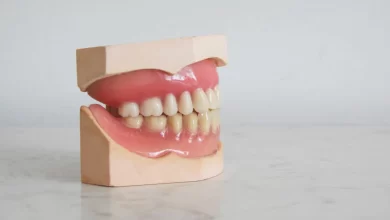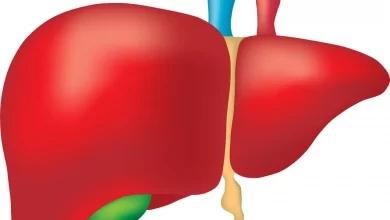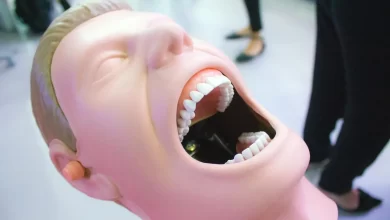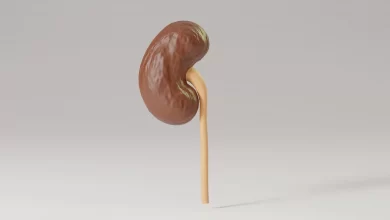Blood brings oxygen and nutrients to all the parts of the body so they can keep working. Blood carries carbon dioxide and other waste materials to the lungs, kidneys, and digestive system to be removed from the body. Blood also fights infections and carries hormones around the body. Technically, blood is a transport liquid pumped by the heart (or an equivalent structure) to all parts of the body, after which it is returned to the heart to repeat the process. So here are 45 interesting facts about human blood.
- Blood is comprised of 92 percent water.
- There are 2.5 trillion red blood cells in your body at any moment.
- Three million of your red blood cells die every second! Luckily, your body is replacing them just as quickly.
- The red bone marrow of bones makes about 2.5 million blood cells every second.
- To maintain this number, about two and a half million new ones need to be produced every second by your bone marrow.
- Half your body’s red blood cells are replaced every seven days.
- Blood is red in color because of the presence of iron in it. The red color arises because the iron is bound in a ring of atoms in hemoglobin called as porphyrin, and it’s the shape of this structure that produced the color. How red your hemoglobin depends on whether there is oxygen bound to it. When the oxygen is present, it changes the shape of the porphyrin, giving the red blood cells a more vivid shade.
- Each Red blood cell is about seven micrometers in diameter.
- Red blood cells comprise about 40% of total blood volume.
- The human blood contains 22000 million cells, including white blood cells, red blood cells, platelets, etc.
- A single drop of blood or the size of a pinhead contains about 5 million Red blood cells.
- There is a blood type known as H-H, which is the rarest, and only a few hundred people possess it.
- People with H-H blood type can’t receive blood transfusions of any other blood type and may need to store their own blood in advance of an operation.
- The most common blood type in the world is Type O. Blood O+ can donate to A+, B+, AB+ and O+ Blood whereas O- can donate to A+, A-, B+, B-, AB+, AB-, O+, and O-.
- If all the blood vessels of human being are laid end to end, they will stretch about 97,000 kilometers (60,000 miles) that is two and half the times the circumference of the earth.
- People who live at very high altitudes have blood in their bodies that can provide oxygen around the body much more efficiently than the people who live at sea level.
- Your blood travels 19,312 kilometers (12,000 miles) every day that is four times the size of the United States.
- On average, the human blood circulates the whole body in every 45 seconds.
- A newborn baby has only one cup of blood in his body.
- It is estimated that someone needs blood in the world every 2 seconds.
- There is nothing that can substitute for human blood.
- Men tend to have 10% more red blood cells than women.
- There are nearly twice as many calories in human blood than in a beer.
- Our bodies contain about 0.2 milligrams of gold, most of it in our blood. It would take 5,000 people to make a 0.35 ounce (1 gram) of gold.
- In each one of our kidneys, there are over 1 million filters that clean around 1.3 liters of blood every minute.
- The human kidneys clean over 1 million gallons of blood in its lifetime.
- The kidneys filter over 400 gallons of blood each day.
- In an average healthy adult, the volume of blood is one-eleventh of the body weight, or between 5 and 6 quarts (4 to 6 litters). This is equivalent to the same amount of oil used in a V8 engine.
- Red blood cells are the only cells in the body that do not have a nucleus.
- The arterial blood contains a lot of nutrients and oxygen, whereas the venomous blood contains a low amount of nutrients and oxygen.
- Each square inch (2.5 cm) of human skin has about 20 feet (6 m) of blood vessels.
- The human heart pumps 72000 liters of blood every day.
- An adult body holds an average of about 5.6 liters ( 6quarts) of blood. These 5.6 liters of blood circulate through the body three times every minute.
- One pint of donated blood can save four lives.
- Your heart will pump nearly one and a half million barrels of blood during your lifetime, which is enough to fill 200 train tank cars.
- On average, one heartbeat pumps five tablespoons of blood.
- The human heart can create enough pressure that it could squirt blood at a distance of 30 feet.
- Blood comprises 7 percent of the weight of an average human body.
- It takes about 60 seconds for one blood cell to travel a full circuit of your body
- When you gain 500gm of fat, your body makes about 11km of blood vessels. This means your body must work harder to pump blood through all of these extra new vessels, straining your heart. Fortunately, if you lose 500gm, your body will break down and re-absorb the unnecessary vessels.
- On average, about 200 billion platelet cells and 10 billion white blood cells are produced in the blood every day.
- Except for the heart and lungs, all other parts of the body receive their blood supply from the largest artery of the body, the aorta.
- It takes about 20 seconds for a red blood cell to circle the whole body.
- There are about 30 to 40 billion white blood cells present in our body to fight against infective and foreign organisms.
- Blood is actually a tissue. When the body is at rest, it takes only six seconds for the blood to go from the heart to the lungs and back, only eight seconds for it to go to the brain and back, and only 16 seconds for it to reach the toes and travel all the way back to the heart.





